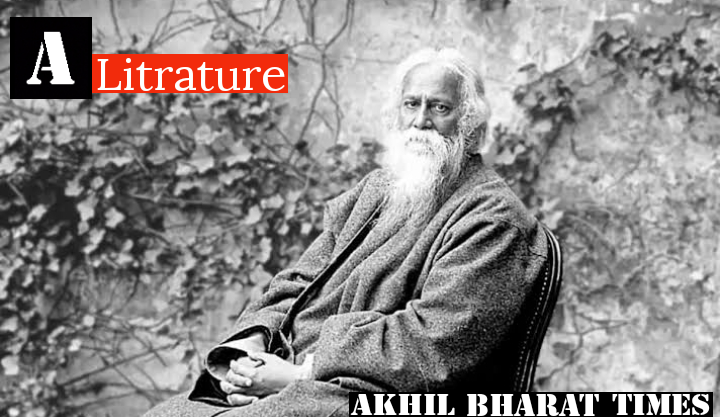
Kolkata – Rabindranath Tagore, born on May 7th, 1861, in Kolkata, India, was a prolific writer, poet, philosopher, and polymath. Tagore’s works encompass a wide range of genres, including poetry, songs, novels, short stories, plays, essays, and philosophical treatises. He was also a painter, musician, and social reformer, and his works continue to have a profound impact on Indian culture and society.
Tagore’s most famous works include his poems, such as “Gitanjali,” which won him the Nobel Prize for Literature in 1913. He was the first Asian to receive the prestigious award, and his poetry continues to be widely read and admired around the world. Tagore’s writing reflects his deep love of nature, his concern for human suffering, and his belief in the power of love and compassion to overcome division and conflict.
Tagore’s social and political thought was deeply influenced by his experiences growing up in colonial India. He was critical of British rule in India and advocated for Indian independence, but he also believed that India needed to reform its own society to be truly free. He was a vocal advocate for social justice, education, and the rights of women.
One of Tagore’s most famous quotes is “Where the mind is without fear and the head is held high,” from his poem “Gitanjali.” This quote reflects Tagore’s belief in the power of individual freedom and the importance of intellectual and spiritual development. He believed that a truly free society required not only political independence but also a commitment to education, creativity, and critical thinking.
Tagore’s educational philosophy was also deeply influenced by his social and political beliefs. He believed that education should be accessible to all and that it should focus on developing the whole person, not just their intellectual abilities. He founded the Visva-Bharati University in Santiniketan, West Bengal, as a place where students could study a wide range of subjects and develop their creativity and spiritual understanding.
Tagore’s influence on Indian culture and society is hard to overstate. His works have inspired generations of writers, artists, and thinkers, and his ideas continue to be debated and discussed today. His belief in the power of love and compassion to overcome division and conflict remains a powerful message in today’s world.
In conclusion, Rabindranath Tagore was one of the most important cultural and intellectual figures of the 20th century. His works continue to inspire and influence people around the world, and his ideas about education, social justice, and individual freedom remain as relevant today as they were during his lifetime. As we celebrate his birthday, let us remember his legacy and continue to learn from his wisdom and insight.
